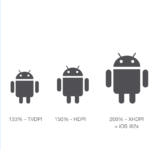Introduction: The Growing Need for Online Safety
In today’s digital landscape, navigating the internet safely has become increasingly challenging. With the proliferation of cyber threats and malicious actors, ensuring one’s online security has become paramount. Recognizing this need, Google has continually worked to enhance the safety features of its Chrome browser. The recent announcement regarding the integration of real-time protection into Safe Browsing marks a significant advancement in online security measures.
Understanding Safe Browsing: A Brief Overview
Before delving into the specifics of Google’s latest enhancement, it’s essential to grasp the fundamentals of Safe Browsing. This feature, utilized by over five billion devices worldwide, serves as a protective shield against potentially harmful websites and files. Traditionally, Safe Browsing relied on periodic updates, with the list of dangerous sites refreshed every 30 to 60 minutes.
The Evolution of Safe Browsing: Real-Time Protection
However, Google’s recent innovation aims to address the limitations of this approach. Recognizing that malicious sites often have short lifespans, Google has introduced real-time protection to Safe Browsing. This entails a dynamic system where the list of potentially harmful sites and files is continuously updated in response to emerging threats.
Key Mechanisms of Real-Time Protection
The implementation of real-time protection hinges on a server-side infrastructure maintained by Google. This server constantly monitors and updates the database of dangerous URLs and files. By shifting from device-based lists to a centralized server, Google aims to bolster the effectiveness of Safe Browsing in thwarting cyber threats.
Enhanced Security Measures and Benefits
Heightened Phishing Protection
Google’s transition to real-time protection promises a significant boost in phishing prevention. With the ability to swiftly detect and block malicious URLs, users are less susceptible to falling victim to phishing attempts. Google anticipates a 25 percent increase in thwarting such attacks, underscoring the efficacy of the new safeguarding measures.
Expansion to Android Platform
Moreover, Google’s commitment to user safety extends to mobile devices, with plans to integrate real-time protection into Android browsers. This expansion ensures that users across diverse platforms can benefit from the enhanced security features, fortifying their online experiences.
Privacy Preservation
Addressing potential privacy concerns, Google assures users that their browsing activities remain confidential. Through encryption and other privacy-enhancing techniques, Google ensures that neither the company nor any third parties can access users’ browsing histories. This commitment to privacy underscores Google’s dedication to safeguarding user data.
Empowering Users: Password Manager Enhancements
In addition to bolstering Safe Browsing, Google introduces enhancements to its password manager, empowering users to strengthen their online security further.
Password Checkup Feature
The new “password checkup” feature enables users to assess the strength and security of their passwords effectively. By analyzing password complexity and identifying instances of password reuse, the tool equips users with insights to fortify their accounts against potential breaches.
Prompt Identification of Compromised Passwords
Furthermore, the password manager promptly alerts users to compromised passwords, prompting immediate action to mitigate security risks. Through proactive monitoring and notifications, Google empowers users to safeguard their online identities proactively.
Conclusion: Safeguarding the Digital Frontier
In conclusion, Google’s introduction of real-time protection to Safe Browsing and enhancements to its password manager represent significant strides in bolstering online security. By leveraging advanced technologies and prioritizing user privacy, Google reinforces its commitment to providing a safer digital environment for users worldwide.
















Leave a Review